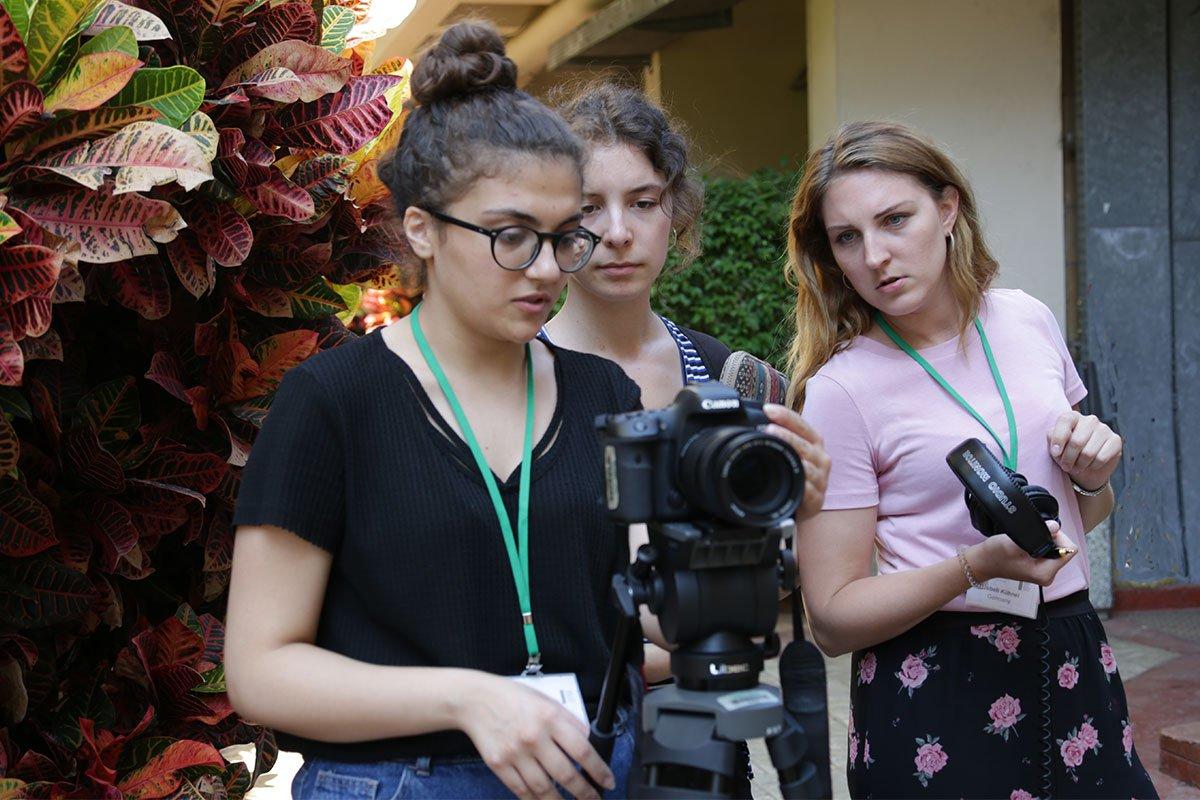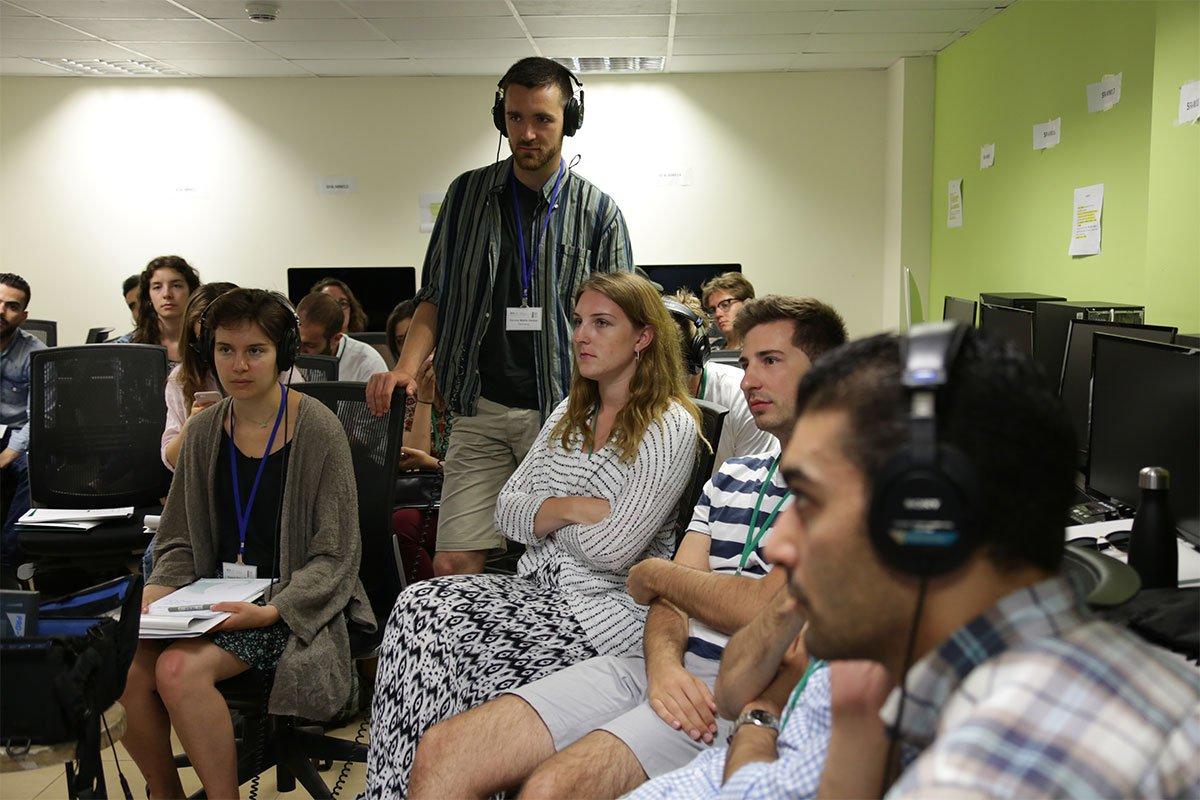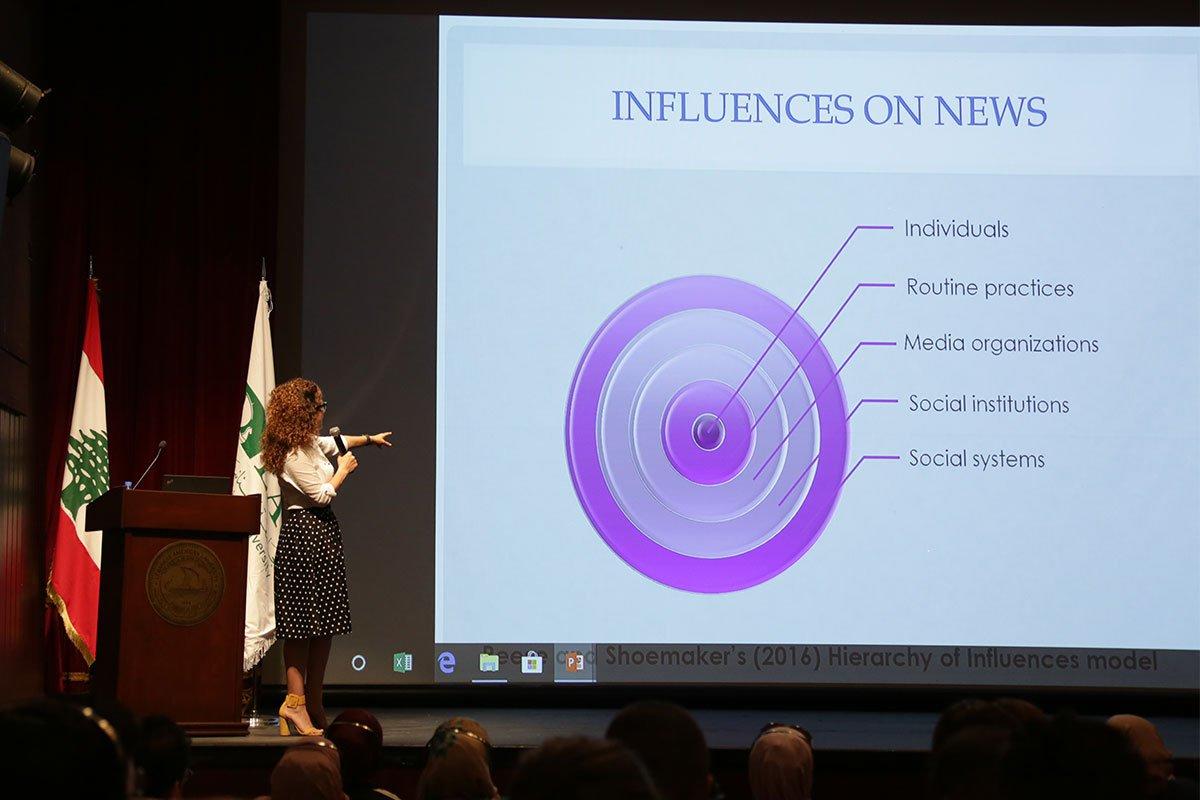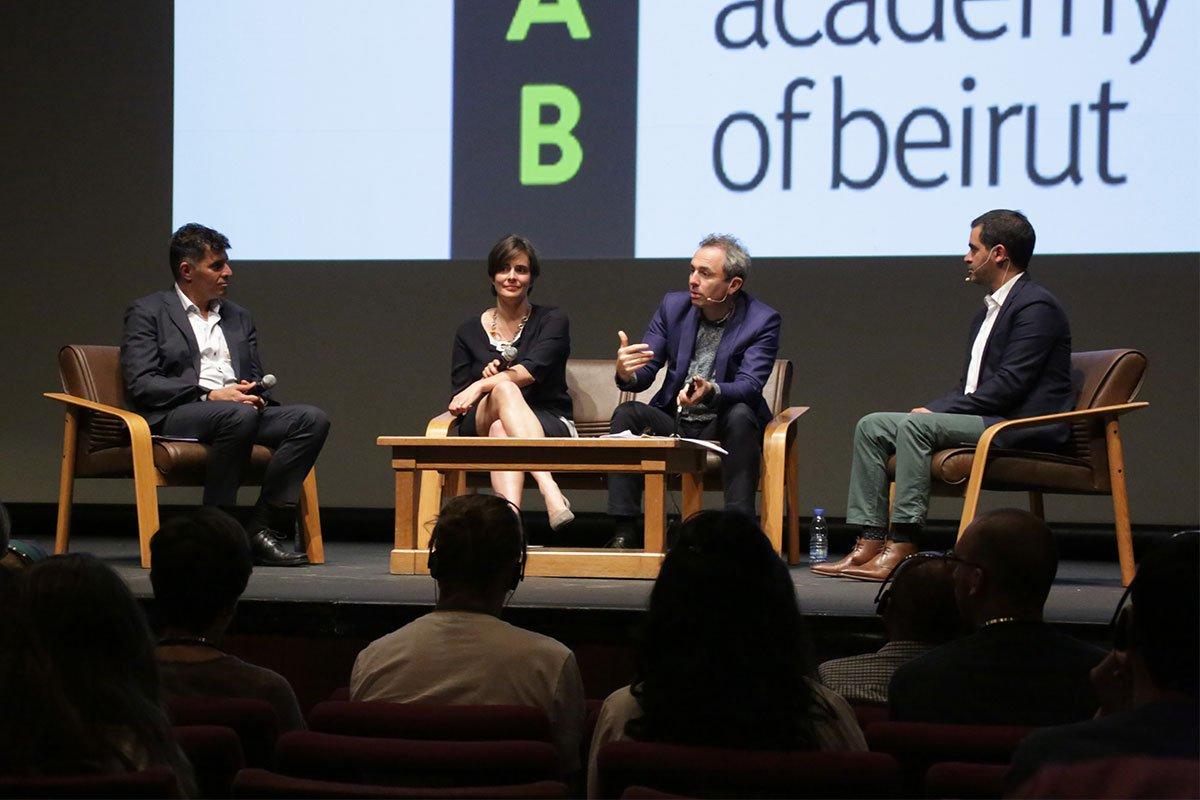MDLAB 2019: Empowering the Oppressed and Marginalized with Media Literacy
LAU trains media academics and activists to design media literacy pedagogies that advance social justice.
The Media and Digital Literacy Academy of Beirut (MDLAB) in its seventh edition focused its training on media literacy for oppressed and marginalized communities, in alignment with its mission to advance freedom of the press and social justice.
Some 60 media academics, professionals, graduate students and activists from the Arab region and Europe participated in the week-long program, which addressed topics such as media framing of conflict, free media, dismantling media bias, feminist mobilization, sustainable financial models for new media and digital security.
“We are directing media literacy education toward the people who are marginalized, people who are oppressed, both in terms of how the mainstream media represent them, and at the same time how media literacy can help these communities and how they can help themselves through media literacy,” said Dr. Jad Melki, chairperson of the Communication Arts Department and founder of MDLAB.
Those communities include women, refugees, people with special needs, impoverished communities, LGBTQ+ and other minorities.
MDLAB is organized by LAU’s Institute of Media Research and Training (IMRT) and sponsored this year by the Canadian Embassy, UNESCO and the German Academic Exchange Service.
Through media literacy, Melki said, the marginalized and the oppressed will be able to represent themselves more accurately and use media to advocate for their causes and counter the stereotypical and oppressive narratives in mainstream media.
The opening panel featured keynote speakers Canadian Ambassador to Lebanon Emmanuelle Lamoureux, British Ambassador to Lebanon Chris Rampling, and the Executive Director of the Samir Kassir Foundation Ayman Mhanna.
Referring to the fast-changing landscape of media, Lamoureux called on journalists to produce high-quality information by “verifying the information that you put out there, and the diversity of your sources.”
In the same vein, Rampling addressed the issue of “twisted news” and the damaging effect of distorted truths. “We are in a situation where there is much more opinion out there than there used to be. So, the question of what is trusted is really more fundamental arguably than it has ever been before.”
Tackling media freedom in Lebanon, Mhanna painted a bleak picture, pointing to the prevailing culture of impunity when it comes to offenses against journalists and human rights activists.
In her lecture on free media, IMRT Pedagogy and Curriculum Design Director Gretchen King called for the creation of community media to counter corporate control. “We can create free media without the aid of foundations, without corporate control and without state control. And one of the things we can do is to bring together independent media makers,” she said.
In addition to the lectures, participants take part in basic and advanced workshops on various digital skills, including photo shooting and editing, audio editing and podcasting, video production, and technical orientation.
Faculty participants, in particular, profit from pedagogical workshops led by IMRT Director of Research Claudia Kozman and Associate Professor of Education Mona Nabhani on curricular and syllabi development, and active and experiential learning methods.
The program’s mission is to equip participants “with the tools and skills to make them proactive consumers and producers of media content,” said Dr. Kozman. “This means being aware of what and who is behind the media messages they receive and how they use them, as individuals who produce mediated content should be aware of what they are disseminating in terms of ethics, frames, and so forth.”
Reinforcing this year’s theme, participants were required to present final projects that deal with working for and with the marginalized.
“This is especially important for the faculty participants whose final projects require them to create and/or revise a media literacy course syllabus with marginalized communities in mind,” Dr. Kozman said.
Aya AlKhawalda, an editor at Akeed of the Jordanian Media Credibility Monitor and a trainer in the field of media and informatics education, described her experience with the academy as interesting “especially that we are a diverse group coming from different Arab and Western countries.”
“The lectures were really beneficial because they added to my experience which I will deliver to my country, Jordan,” she continued.
MDLAB is also a training field for LAU students who run media press and online operations, documentation, and logistics as part of the Digital Media Squad. Students also assist faculty in the digital training workshops.
The program will take this active learning approach a step further in 2020. Students in the newly launched MA in Multimedia Journalism will be required to lead workshops and give lectures as part of their training, said Dr. Melki.
“I have been working in MDLAB for three consecutive years now,” said Rana Tabbara, a multimedia journalism fresh graduate and Squad’s website editor.
“This year, I started contributing to the workshops after two years of gaining experience in digital literacy. Considering that I’m part of the digital squad, our relationship with the participants becomes very friendly because we interact with them daily.”
(Additional reporting by the Digital Media Squad)



